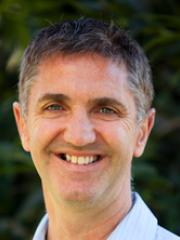Professor Jeff Coombes

Position
Professor in Clinical Exercise Physiology
Qualifications
BEd (Hons), BAppSc, MEd, PhD
Professional memberships and associations
- Fellow of Exercise and Sport Science Australia
- Fellow of the American College of Sports Medicine
Current projects/grants
- Queensland Health – Health Practitioner Research Scheme. An RCT feasibility study to determine if a HP-led telemedicine cardio-protective initiative can mitigate metabolic complications in liver transplant recipients.
- NHMRC Project Grant. BRAIN Training Trial: Balance, Resistance, or INterval Training Trial: A Randomised Controlled Trial of Three Exercise Modalities in Mild Cognitive Impairment. $
- Intense exercise for survival among men with metastatic castrate-resistant prostate cancer (INTERVAL - MCRPC): A Multicentre, Randomized, Controlled Phase III Study.
- Diabetes Australia Research Program Grant. High intensity exercise targeting insulin resistance in non-alcoholic steatohepatitis: is it safe, effective and feasible in practice?
- Metabolic exploration in neurodegenerative disease (MEND): synergy between derangements in systemic and muscle metabolism in MND.
- ARC Discovery Grant. Enhancing Language Learning in Ageing with Exercise.
- Wesley Hospital Research Foundation Grant. Feasibility, Safety, Adherence and Efficacy of High Intensity Interval Training in Hospital-Based Cardiac Rehabilitation.
- Predicting the Variability of Response to High Intensity Interval Training.
- Effects of exercise intensity on myocardial and arterial function, and intra-abdominal fat in obese children and adolescents.
- IL-22 as a Suppressor of Pancreatic b-Cell Stress and a Treatment for Diabetes.
- High Intensity Interval Training in Patients with Metabolic Syndrome
- High Intensity Interval Training in Obese Children
- Exercise Training in Pre-Transplant Recipients
- Monitoring resistance training load
- Exercise, Diabetes and the Tendon
- NRF2 Activation
- Oxidative Stress Biomarkers
- Cold Water Immersion and Recovery after Exercise
- High Intensity Interval Training in Patients with Type 2 Diabetes
- Blood flow manipulation for strength gains
Researcher biography
Professor Jeff Coombes has undergraduate degrees in science, exercise physiology and education, and completed his Masters and PhD conducting biochemistry and physiology projects. Specifically, his PhD investigated the effects of exercise training and antioxidant supplementation on oxidative stress and heart function. These projects allowed him to develop skills in the biochemical measures of oxidative stress, inflammation and antioxidants using a variety of techniques. As the studies were in humans and rats, he also developed skills in physiological measures associated with heart function and fitness. At the University of Queensland, he has established the Antioxidant Research laboratory that conducts projects investigating the effects of exercise and nutrition on health-related aspects of physiology and biochemistry. His laboratory has numerous devices that would be used in the biomarker aspects of the CRE, including high performance liquid chromatography (HPLC), gas chromatography mass spectrometry (GCMS) and antibody multiplexing systems. He has the skills, experience and the track record to conduct these measures.
In addition, as Principal Advisor, Jeff has supervised 24 PhDs to graduation and currently has 15 students. He was awarded an “Excellence in RHD Supervision” by the University of Queensland in 2013, and will bring these skills to the development of the health and medical research workforce platform of the CRE by facilitating opportunities to advance training of new researchers in the Renal Biomarker field, in collaboration with Chief Investigators, Professor Zoltan Endre, Professor Glenda Gobe, Professor Robert Fassett and Professor Helen Healy.
Jeff maintains a current, active teaching program at the University of Queensland and is a regular invited speaker, both nationally and internationally. He is well placed to support the Centre's Translational Framework.
| Featured projects | Duration |
|---|---|
| The DROP CKD Study: Distinguishing risk of progressive chronic kidney disease | 2017–2020 |
| The NHMRC CKD Biobank |
